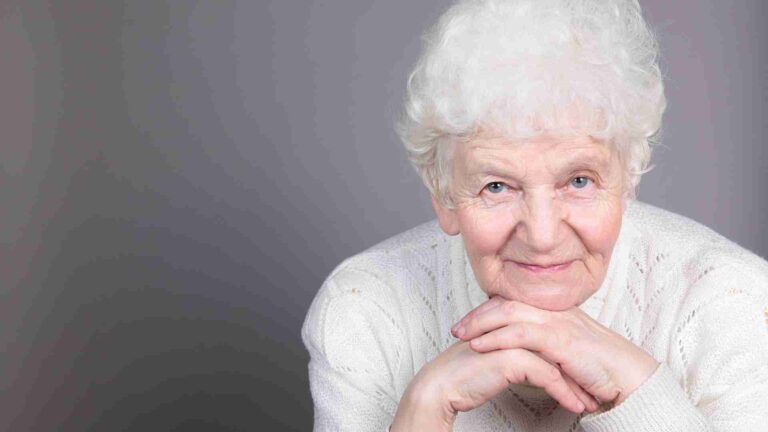As we reach our later years, Lynchburg residents often find ourselves contemplating our legacy and what we will leave behind for our loved ones and cherished causes. This phase, often referred to as "late old age," presents a unique set of challenges and opportunities for estate planning. At this stage, individuals are typically well into retirement, possibly widowed, and have accumulated substantial assets. Defining “late old age” must consider factors like health, mental status, family history and plain old luck, says a recent article from Financial Advisor, “Tax-Smart Wealth Transfer Tips For Clients In Late Old Age.” It's a time when careful financial planning can make a significant difference in ensuring that your accumulated wealth goes to the people and organizations you choose, rather than to the taxman. In this article, we'll explore essential financial planning strategies for late old age, focusing on minimizing tax burdens and safeguarding the value of your estate.
What's Considered Late Old Age?
Before delving into specific strategies, let's first define "late old age." This phase of life varies from person to person rather than relating to one particular age and depends on factors such as health, mental status, family history, and even luck. Generally, someone in late old age is often widowed and, if they are well-to-do, has more assets than they are likely to spend in their remaining years, considering reserves needed for potential long-term care.
At this stage, it's crucial for individuals to have a comprehensive estate plan in place, including a last will and testament, trust, and named beneficiaries on retirement and investment accounts. Additionally, steps should be taken to minimize the tax liabilities that heirs might face upon the individual's passing. If you haven't started working on your estate plan, there's still time, but it's essential to speak with a Lynchburg estate planning attorney like Robert W. Haley to create one.
What Challenges in Estate and Tax Planning Do Women Face in Particular?
As the estate values of accomplished and financially successful women increases, they must consider what assets they will need to continue their current lifestyles, and what assets would be at risk, in case of death or divorce if they are still married. Statistically, women do outlive men, so there needs to be a plan for the unexpected. Women with substantial net worth should be making plans for gifting and trusts now. The gift tax lifetime exemption remains at $11.7 million, but even if there is no legislative action, on January 1, 2026, this will return to $5 million.
There are any number of ways to take money out of an estate. These include outright gifts, loans to family members and special trusts. A variety of trusts are created to preserve family wealth, from simple to complex trusts used to extend wealth across many generations..
Keeping Your Affairs in Order: How to Limit Your Potential Taxes
Late old age brings with it several financial considerations that can significantly impact your estate and tax situation. Recent changes in the treatment of inherited retirement accounts, as well as life events like deaths, births, or marriages in the family, necessitate a close look at your estate plan at least annually. So, what actions should you take to protect your wealth during this stage of life? Use the following planning tips as a helpful checklist with your financial planner and estate attorney to ensure your wealth transfers with the fewest tax consequences possible.
Consistent and Directed IRA Withdrawals
One critical tax strategy is to implement directed, consistent, and constant dollar withdrawals from traditional individual retirement accounts (IRAs). This approach helps you avoid being pushed into a higher tax bracket. Additionally, consider using charitable donations strategically while retaining enough IRA assets to leverage lower tax brackets in late old age.
Donor-Advised Funds and Family Foundations
Consider contributing to donor-advised funds (DAFs) or establishing a family foundation by selling highly appreciated stocks. If still married and you anticipate your spouse's passing, transferring a portion of appreciated stock from joint accounts to a separately owned account can help you benefit from the step-up in basis at the spouse's death.
Priorities in Late Old Age
As you enter late old age, there are three key priorities to keep in mind:
- Review IRA Beneficiaries: Ensure that the beneficiaries listed on your IRA accounts align with your current preferences and are structured to minimize the tax burden on these traditional IRAs.
- Executor Knowledge: Confirm that the person named as your executor is someone you trust who fully understands your investments and bequest preferences and is prepared to handle the responsibilities that will arise in the future.
- Estate Tax Planning: In case of imminent inheritance estate tax liability imposed by federal or state law, consult with your estate planning attorney to explore planned charitable gifts or other strategies to minimize estate taxes.
How to Minimize Tax Issues for Beneficiaries
When it comes to reducing the tax burdens that your beneficiaries may face, there are several effective options to consider:
1. Switching IRA Beneficiaries
Consider switching IRA beneficiaries to grandchildren or younger family members who are in lower tax brackets. Non-spouse beneficiaries now have only ten years to empty inherited accounts, making tax-efficient planning essential. Read more in our article: Can You Leave an IRA to a Beneficiary?
2. Beneficiary Designations for Non-IRA Assets
For wealthy children who may not require inheritances, consider designating their children or other members of the next generation as beneficiaries of non-IRA assets within your estate. This strategy can help minimize tax implications.
3. Planned Charitable Gifts
Making planned charitable gifts can be a powerful way to reduce both federal and state inheritance taxes. If you live in a state with these taxes, the state tax bite could be just as bad, if not worse, than the federal tax. Charitable gifts can also help mitigate capital gains taxes on appreciated assets within your estate before probate is completed.
The Role of Professionals in Late Old Age Planning
An experienced estate planning law firm familiar with Virginia state laws like The Estate & Elder Law Center of Southside Virginia is invaluable for managing legal filings after your passing. However, it's essential to assemble a comprehensive team, including a competent executor who understands your intentions and a financial advisor familiar with your assets and transaction history. Collaborating with professionals ensures that your late old age planning is executed smoothly and effectively.
In conclusion, late old age is a critical stage in your estate planning journey. By implementing the strategies discussed in this article and seeking guidance from qualified professionals, you can protect your accumulated wealth from excessive taxes, secure the financial future of your loved ones, and leave a lasting legacy for the charitable causes that matter most to you. Schedule a call with our team today to discuss how we can guide you in ensuring your plans are set.
Key Takeaways
- Late old age is a phase that requires careful estate planning, considering factors like health, wealth, and family dynamics.
- Strategies for minimizing tax burdens in late old age include consistent IRA withdrawals and charitable giving.
- Priorities in late old age include reviewing IRA beneficiaries, ensuring your executor is well-prepared, and exploring options to minimize estate taxes.
- Beneficiaries' tax burdens can be minimized by switching to lower-tax-bracket beneficiaries, designating non-IRA assets, and making planned charitable gifts.
- Building a team of professionals, including an estate planning attorney and financial advisor, is essential for successful late old age planning.



